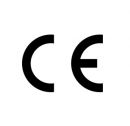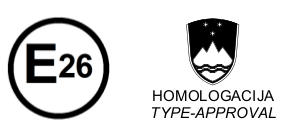How to rebrand OEM devices?
GPS trackers that are offered by us fall into a category of equipment that is required to follow CE RED (2014/53/EU) regulations. Car-mounted applications must also comply with Regulation No. 661/2009. Our official policy is to diligently follow these regulations and all our clients are recommended to follow our example in this respect.
Teltonika goes through the required certification processes as an independent manufacturer. Once the devices are safe to market, the devices are offered for sale. At this stage the set of test reports and certificates/type approvals proving the compliance with aforementioned regulations are available. Please contact your sales manager or contact us to find out which rebadging options you have. To properly rebrand a device, Teltonika recommends following a procedure as described below:
- Contact us with a request of Customer Specific Requirements (CRS) form. Fill in the form with a clear statement that you would like to change the trade mark and type to your own. Please also state the company name and HQ address as it will appear in the manufacturer information.
- We will contact the test laboratories to reissue the test reports under the client company name and issue certificates/type approvals under a new manufacturer name to avoid obstacles to rebranded product sales in the EU market.
- When you are provided with the CE RED certificate, please draw your own Declaration of Conformity and follow the CE RED requirements as listed below.
- When you are provided with the type approval, please be prepared to demonstrate it to the customer when required. Your brand label will already be prepared by us according to all pertaining requirements.
- Contact us for test reports if they are required by a national or accredited competent authority. These reports are available at short notice.
CE RED
The Radio Equipment Directive (2014/53/EU) ensures a Single Market for radio equipment by setting essential requirements for safety and health, electromagnetic compatibility, and the efficient use of the radio spectrum.
Description
It applies to all products using the radio frequency spectrum. It has been applicable since 13 June 2016. As of 13 June 2017 the new set of requirements of RED are applicable to the equipment.
According to RED directive, the conformity against the following requirements needs to be demonstrated:
- 3.1(a): Radio equipment shall be constructed so as to ensure the protection of health and safety of persons and of domestic animals and the protection of property, including the objectives with respect to safety requirements set out in Directive 2014/35/EU (LVD), but with no voltage limit applying;
- 3.1(b): Radio equipment shall be constructed so as to ensure an adequate level of electromagnetic compatibility as set out in Directive 2014/30/EU (EMC).
- 3.2: Radio equipment shall be so constructed that it both effectively uses and supports the efficient use of radio spectrum in order to avoid harmful interference.
Starting with 20 December 2020 only the EN62368-1 will be accepted as a proof of conformity for LVD part of CE RED requirements.
When rebranding, the economic operator placing the devices under own name is considered to be a manufacturer and assumes the obligation of the manufacturer as per p. 35 of Directive 2014/53/EU.
Manufacturer responsibilities according to Directive 2014/53/EU
The key responsibilities of a manufacturer are:
- Drawing up a Declaration of Conformity (DoC) as per requirement of Article 10.3 and according to statements of Article 18.
- Supplying a copy of DoC with every item according to Article 10.9.
- Applying CE mark according to the requirements of Regulation No. 765/2008.
- Preparing the necessary documentation as per requirement of Article 10.3 and according to statements of Article 21.
- Providing instructions and safety information, among which radio frequency bands and maximum power need to be indicated, according to the requirements of Article 10.8.
- Indicating a reliable point of contact as per requirement of Article 10.7.
- Providing the documents that demonstrate the conformity when requested by a competent national authority.
- Storing the documents for 10 years after placement to the market according to the requirement of Article 10.4.
E-Mark
E-Mark is the regulations issued by the Economic Commission for Europe (referred to as ECE).
Description
According to the UN European Economic Commission regulations and the provisions of EU directives, in order to enter European market, cars, motorcycles and a variety of components and systems must be certified to meet the basic requirements of traffic safety and environmental protection. E-Mark and e-Mark are the European conformity marks issued by the transport sector, indicating that the products comply with relevant laws and regulations or directives. Vehicles and related products need to go through E-Mark certification process to be legally sold in Europe.
There are currently 28 EU countries in ECE, in addition to EU member countries, including Eastern European, Southern European and other non-European countries. ECE regulations apply to all members is recommended, not mandatory standards. Member States may apply the ECE regulations, or continue to use their own regulations. E-Mark logo is a circular frame, means when the vehicle stop travel, the products must be used, for example: windshield, seat belts, headlights, and so on. Each EU member state has its own number of E-Mark certificate.
Manufacturer responsibilities according to Regulation No. 661/2009 and Directive 2007/46/EC
The key responsibilites of a manufacturer are:
- Demonstrating the type-approval in accordance to the measures and requirements of Article 4.2 of Regulation No. 661/2009.
- Affixing EC type approval mark on the label as per requirement of Article 19 of Directive 2007/46/EC.

